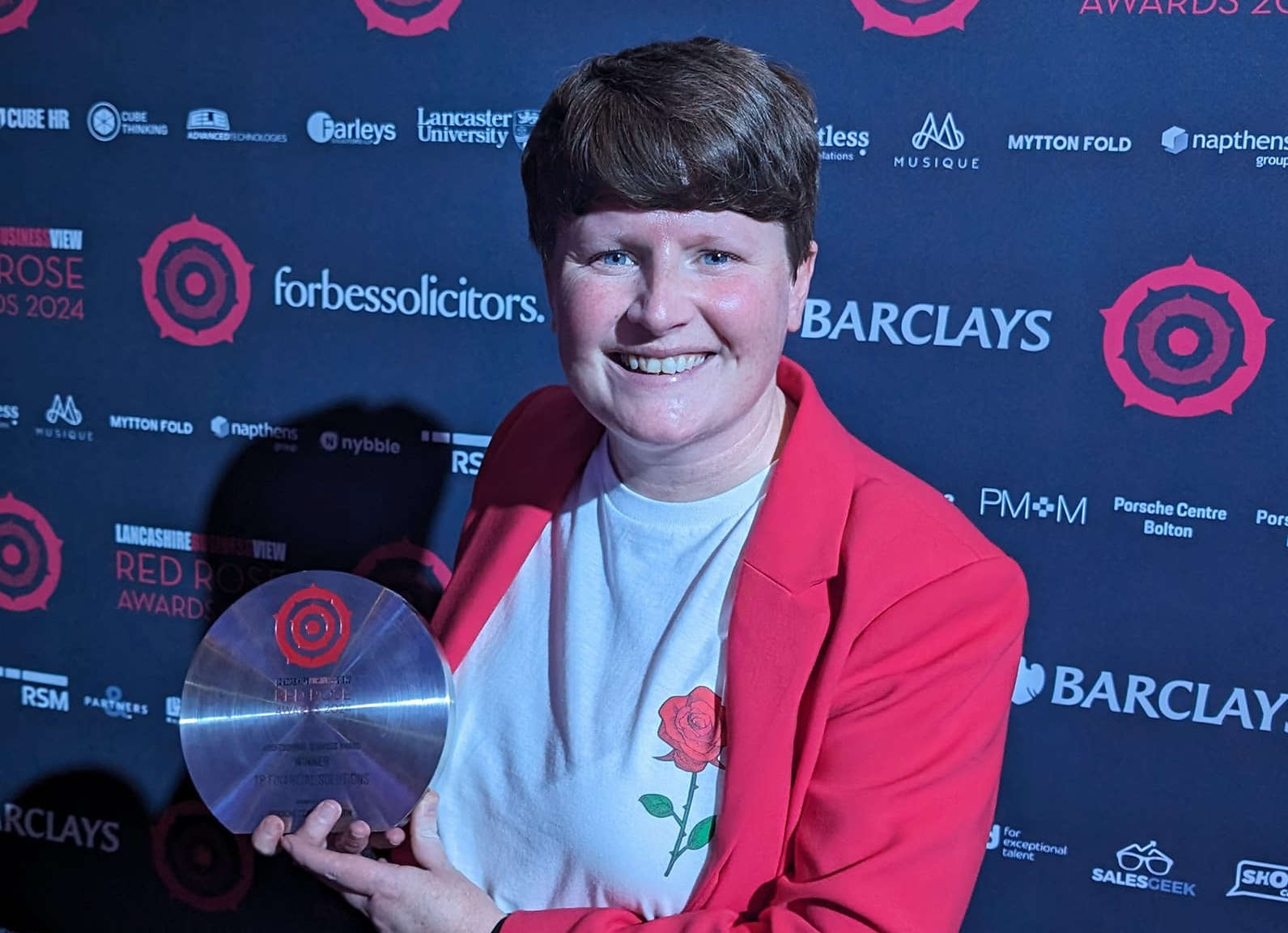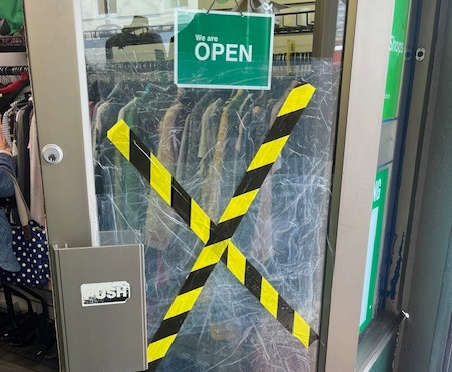
A revamped and strengthened Football Governance Bill aimed at addressing the issues facing the financial sustainability of the professional game in England has taken its first steps.
The Bill will establish an Independent Football Regulator and a new set of rules to protect clubs, empower fans and keep clubs at the heart of their communities.
A previous version of the Bill had been going through Parliament when the general election was called, with an updated version now published.
The Bill was discussed by Morecambe MP Lizzi Collinge, as she invited Culture Secretary Lisa Nandy to the Mazuma Mobile Stadium for talks.
Ms Collinge, who was elected in July as a Labour MP, said: “I am so happy to see the new Government deliver on our promises to fix football governance and protect league clubs like Morecambe.
‘’The Shrimps are a fundamental part of our local community and football fans up and down the country can now be assured there will be proper regulation to protect their home teams.”
New powers in the Bill include consulting fans on ticket pricing, home stadium relocations, and fan representation at clubs and also brings parachute payments into the Regulator’s remit so it will have full oversight to tackle financial sustainability across the football pyramid.
The requirement to consider government foreign policy has been dropped to cement regulator’s full independence.
The Bill comes at a critical juncture for English football, following the attempted breakaway European Super League, and a series of high profile cases of clubs being financially mismanaged.
In recent years we’ve seen the devastating impact of the collapse of clubs like Bury and Macclesfield. These cases came about as a result of fundamental governance problems in the game that have led to excessive and reckless risk-taking, with many clubs living way beyond their means.
The Regulator will tackle rogue owners and directors, implement a club licensing regime to help ensure a more consistent approach in how clubs are run, monitor club finances and improve fan engagement throughout the football pyramid - from the Premier League to the National League.
It will also have a backstop measure to mediate a fair financial distribution down the Leagues should the Premier League and EFL (English Football League) not be able to come to an agreement.
The Shrimps Trust are the official voice of Morecambe supporters.

Chair of the Trust, Tarnia Elsworth (pictured above), said: “We are encouraged to see the Football Governance Bill progressing. An Independent Football Regulator is desperately needed, which is proven with the current stalemate that we see ourselves in at Morecambe FC.
‘’As a Trust we will be keenly reviewing the revamped version of the Football Governance Bill and will make separate comment in due course, in conjunction with the Football Supporters Association.
‘’We thank our local MP, Lizzi Collinge, for her attention to this and the Culture Secretary, Lisa Nandy, for prioritising this since taking up her role. Football clubs have an incredible impact on our communities at all levels, it is vitally important that they are protected in the way that this Bill aims to achieve.''
Culture Secretary Lisa Nandy added: ‘’English football is one of our greatest exports and a source of national pride which this Government wants to see thrive for generations to come.
‘’But for too long, financial instability has meant loyal fans and whole communities have risked losing their cherished clubs as a result of mismanagement and reckless spending.
‘’This Bill seeks to properly redress the balance, putting fans back at the heart of the game, taking on rogue owners and crucially helping to put clubs up and down the country on a sound financial footing.”
Earlier this week, the Shrimps Trust received the latest update from Jason Whittingham of Bond Group, as the saga regarding the sale of the club rumbles on.
It has been a long and protracted sale process, which has dogged the club for many months, since Morecambe Football Club was put up for sale in September 2022 by Bond Group.

In a statement, Mr Whittingham (pictured above) said: "The sale is still progressing albeit slowly. Whilst I appreciate this is frustrating for everyone, myself included, we are making every effort to bring the acquisition to completion.
‘’There were two meetings with the EFL last week and they clarified what was now required from the buyer in order to ensure we can move to completion.
‘’The buyer is in the process of finalising the requirements and working with the Club and me as seller."
The English Football League (EFL) has to approve any prospective new owner of any club.
In any potential ‘takeover’ or acquisition of control as it is formally known, it is the responsibility of the club in question to inform the EFL of a proposed change.
Once the League has been made aware, the process of making the necessary checks against the requirements of EFL Regulations will then begin. The Regulations ultimately set the criteria regarding who is permitted to own a club - or exercise control over it - and whether they meet the requirements to do so.
Every acquisition process is different, but there are three key parts in each case.
First, there is the Owners’ and Directors’ Test, an objective test where prospective owners and directors have to evidence the fact they are not subject to any disqualifying events. The disqualifying events are clear and set out in the Regulations.
Second, the Club and prospective owners must submit Future Financial Information (FFI) to demonstrate how the Club will operate over the period ahead, from which any additional cash requirements to support the running of the Club can be identified.
Finally, any potential owner must demonstrate to the EFL the ultimate Source and Sufficiency of Funding which will underpin the purchase and future operations. Or in simple terms, how much money they have and where it has come from.
Only once all Regulations are satisfied will the EFL issue clearance for any change of control.



 Morecambe Winter Gardens to open to public for new season
Morecambe Winter Gardens to open to public for new season
 Cash for repairs to Lancaster Port gate announced in £6.5m flood defence package
Cash for repairs to Lancaster Port gate announced in £6.5m flood defence package
 Carnforth fire crews issues safety advice after tackling blazes in the open
Carnforth fire crews issues safety advice after tackling blazes in the open
 EXCLUSIVE: Battle of Britain Dakota display announced for Armed Forces Day in Morecambe
EXCLUSIVE: Battle of Britain Dakota display announced for Armed Forces Day in Morecambe
 Heysham school to open new nursery after government cash boost
Heysham school to open new nursery after government cash boost
 Local election candidates announced
Local election candidates announced
 Holiday park empire donates £100K to Lancaster hospice
Holiday park empire donates £100K to Lancaster hospice
 Lancaster and Morecambe events will 'Spring into Action' over food
Lancaster and Morecambe events will 'Spring into Action' over food
 Lancaster City Council shortlisted for four local government awards
Lancaster City Council shortlisted for four local government awards
 Man pleads guilty to Heysham murder
Man pleads guilty to Heysham murder
 Driest March in Lancaster since records began
Driest March in Lancaster since records began
 Pioneering Morecambe 'podcast' from 1980s unearthed after 44 years
Pioneering Morecambe 'podcast' from 1980s unearthed after 44 years
 Lorry driver from Morecambe arrested after positive roadside drug test
Lorry driver from Morecambe arrested after positive roadside drug test
 Hundreds raised after vandalism to Lancaster hospice shop
Hundreds raised after vandalism to Lancaster hospice shop
 Plans under way to bring spring flowerbed planting back to Morecambe
Plans under way to bring spring flowerbed planting back to Morecambe
 New cycle and pedestrian friendly crossing completed in Morecambe
New cycle and pedestrian friendly crossing completed in Morecambe
 INTERVIEWS: Morecambe Bay visitor guide launched with high hopes for tourist season
INTERVIEWS: Morecambe Bay visitor guide launched with high hopes for tourist season
 Council looking at ways to fund £1m refurb of village hall in Carnforth
Council looking at ways to fund £1m refurb of village hall in Carnforth
 Pan-disability game at Morecambe FC will raise awareness of autism
Pan-disability game at Morecambe FC will raise awareness of autism
 Morecambe lifeboat crew respond to reports of ‘flashing lights and red flares’
Morecambe lifeboat crew respond to reports of ‘flashing lights and red flares’




